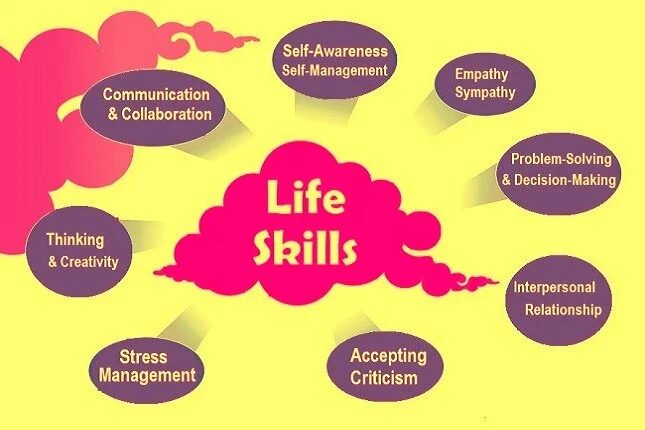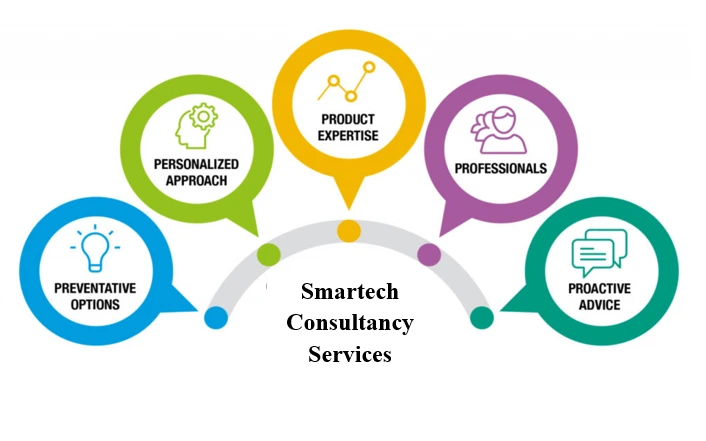Imagine life as a vast, uncharted territory. To navigate its winding paths and conquer its unexpected challenges, you need a backpack overflowing with essential tools. As adults, we often find ourselves facing situations we never learned about in school. Fear not, fellow adventurers! This guide equips you with the Essential skills to thrive in the adulting world, offering resources to sharpen your toolkit and transform you from a bewildered beginner to a seasoned explorer.

The Essential Skills Toolkit: A Guide for Adulting Success
Here’s a breakdown of the crucial skills every adult should strive to master:
1. Communication Skills:
Effective communication is the cornerstone of strong relationships, both personal and professional. Imagine trying to build a house without a shared language – it wouldn’t be pretty, right? Mastering the art of clear and concise communication, both verbal and written, allows you to express yourself confidently, listen actively, and navigate conflict constructively.
Resources: Consider enrolling in public speaking or communication workshops. Online resources like Coursera or edX offer communication courses, and books like “How to Win Friends and Influence People” by Dale Carnegie offer timeless advice.
2. Time Management:
Time – the ultimate double-edged sword. It seems to fly by when you’re having fun, yet crawl when you’re tackling a mountain of tasks. Effective time management skills empower you to conquer your to-do list without feeling overwhelmed. You’ll learn to prioritize tasks, set realistic deadlines, and avoid procrastination (the bane of every adult’s existence!).
Resources: Time management apps like Todoist or Trello can be lifesavers. Books like “Getting Things Done” by David Allen provide practical strategies for organization, and countless online articles offer time-management tips and tricks.
3. Budgeting and Financial Literacy:
Adulting often involves a rude awakening – bills, taxes, and the ever-present struggle to make ends meet. Financial literacy empowers you to manage your money effectively. Learn to create a budget, track your spending, differentiate needs from wants, and plan for your future. Remember, financial security is a cornerstone of peace of mind.
Resources: Websites like Khan Academy offer free financial literacy courses. Books like “I Will Teach You to Be Rich” by Ramit Sethi provide practical guidance, and numerous budgeting apps can help you track your finances.
4. Critical Thinking and Problem-Solving:
Life throws curveballs – unexpected problems that demand solutions. Developing critical thinking skills allows you to analyze situations objectively, gather information, weigh options, and make informed decisions. Think of it like mental karate – you’ll be equipped to tackle challenges with logic and resourcefulness.
Resources: Online platforms like Lumosity offer brain-training games that can sharpen your critical thinking skills. Websites like The Critical Thinking Co. provide logic puzzles and exercises, and books like “Thinking, Fast and Slow” by Daniel Kahneman offer insights into how we make decisions.
5. Self-Care and Emotional Intelligence:
Adulting isn’t all spreadsheets and responsibilities. Taking care of yourself, both physically and mentally, is crucial. Self-care encompasses healthy eating, regular exercise, and getting enough sleep. It also involves managing stress, identifying your emotions, and developing healthy coping mechanisms.
Resources: There are countless online resources on healthy living, stress management, and self-care practices. Yoga studios, meditation apps, and therapy services can all contribute to your well-being.
6. Basic Home Maintenance Skills:
Leaky faucet? Clogged drain? Knowing how to handle minor home repairs can save you time and money. Basic skills like unclogging drains, fixing leaky faucets, and changing air filters empower you to take charge of your living space and avoid costly repair calls.
Resources: Websites like YouTube offer a treasure trove of DIY home repair tutorials. Books like “The Complete Idiot’s Guide to Home Repair” provide step-by-step instructions, and local hardware stores often host workshops on basic home maintenance tasks.
7. Technology Skills:
Technology is woven into the fabric of our daily lives. Knowing how to navigate computers, smartphones, and essential software applications is crucial for everything from online banking and job searching to communication and entertainment.
Resources: Local libraries often offer free computer literacy workshops. Online tutorials and courses can teach you specific software skills, and websites like Khan Academy provide free technology-related courses.
8. Adaptability and Lifelong Learning:
The world is in constant flux, and the skills that were once valuable might become obsolete tomorrow. Developing adaptability allows you to embrace change, learn new skills, and adjust to unforeseen circumstances. Lifelong learning is key – embrace new challenges, explore different subjects, and keep your mind sharp.
Resources: Online platforms like Coursera and edX offer a vast array of courses on a variety of topics. Local colleges and community centers often host workshops and lectures, and libraries offer a wealth of books and resources on diverse subjects.
9. Interpersonal Skills:
Building strong relationships is vital for personal and professional success. Interpersonal skills encompass active listening, empathy, teamwork, and the ability to build rapport with others. These skills enable you to navigate social situations effectively, collaborate with colleagues, and nurture meaningful connections.
Resources: Improv comedy classes can help you develop your communication and social skills. Books like “How to Talk to Anyone” by Leil Lowndes offer practical tips, and online resources like Psychology Today provide articles on building strong relationships.
10. Cooking Skills:
Nourishing your body with healthy meals is essential for overall well-being. Mastering basic cooking skills empowers you to prepare delicious and nutritious meals at home, saving you money and avoiding unhealthy fast food options.
Resources: Online platforms like YouTube offer countless cooking tutorials. Local cooking classes can teach you specific cuisines or techniques, and cookbooks offer a wealth of recipes and inspiration.

Conclusion: Mastering the Art of Adulting
Remember, adulting is a journey, not a destination. There will be bumps along the road, but by equipping yourself with these essential skills and utilizing the resources available, you’ll be well on your way to conquering life’s challenges and carving your own path to success. Embrace lifelong learning, experiment, and don’t be afraid to ask for help. You’ve got this!
Frequently Asked Questions (FAQs)
1. I feel overwhelmed by the number of skills I need to learn. How do I start?
Don’t try to tackle everything at once. Choose one or two skills you find most challenging and focus on those initially. Once you feel comfortable, you can gradually add new skills to your repertoire.
2. I don’t have a lot of money to invest in learning new skills. Are there any free resources available?
Absolutely! There are a wealth of free online resources available, from educational platforms like Khan Academy and Coursera to library resources and YouTube tutorials.
3. I’m not very tech-savvy. How can I learn essential technology skills?
Many libraries offer free computer literacy workshops. Don’t be afraid to ask younger family members or friends for help, and online resources with step-by-step instructions can guide you through specific tasks.
4. What if I’m not good at something? Should I give up?
Everyone starts somewhere! Embrace the learning process. Don’t be discouraged by setbacks – view them as opportunities for growth. Persistence and practice are key to mastering any skill.
5. How can I stay motivated to learn new skills?
Find an accountability partner who can share your learning journey. Set realistic goals and celebrate your achievements. Remember, the more you learn and grow, the more empowered you’ll feel to navigate the world of adulting with confidence.

